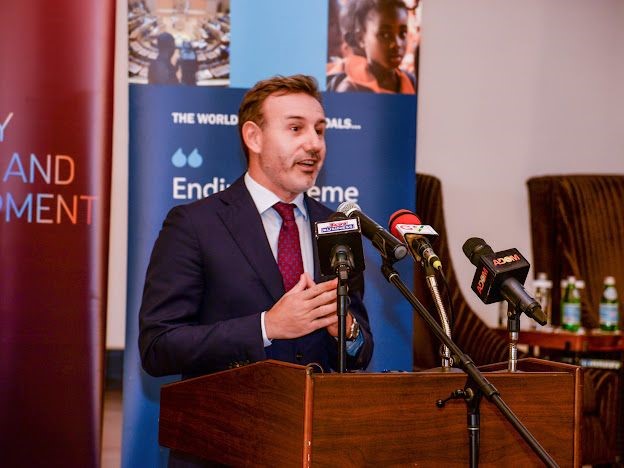The World Bank has urged the Ghanaian government to build skills among the youth for new green jobs as one of the steps to mitigate the impact of Climate Change on the population. The bank also urged Ghana to restore macro-economic stability and create the enabling environment for the private sector to operate fully to achieve its objectives on climate change.
Lorenzo Carrera, Sector Leader, Sustainable Development at The World Bank Ghana office, made this call in an interview with News Ghana after the launch of the World Bank Group’s new Country Climate and Development Report (CCDR) for Ghana.
In order to reduce the impact of Climate Change on the poor, Carrera said “Ghana should focus on improving responsive social protection systems and safety nets for vulnerable groups, strengthen financial inclusion, and build skills for new green jobs and livelihoods.”
Commenting on the report, Carrera said at least one million more people could fall into poverty and poor households and could lose as much as 40 percent of their incomes by 2050 due to climate shocks, if urgent climate actions were not introduced.
“The report points out that Ghana’s economic and human development is vulnerable to climate change. But it also demonstrates that Ghana can simultaneously pursue its long-term development and climate goals, if it adopts a strategic approach,” said Carrera.
To achieve this, he said the government should consider reviewing incentives for the private sector, developing green taxes, start developing green projects and allowing Foreign Direct Investments into areas where climate actions were needed.
The report also identifies practical actions and recommendations for the government to address climate change and take action. It will need some investments and it is estimated in the report that the investment needed for climate action only for new climate actions not retrofitting the existing infrastructure is around 2-3 percent of GDP per year until 2050, more or less of it will come from the private sector and the rest will come from the public sector, he added.
“Implementation of these can spur development. Ghana needs to grow and grow fast and sustainably,” he stated.










